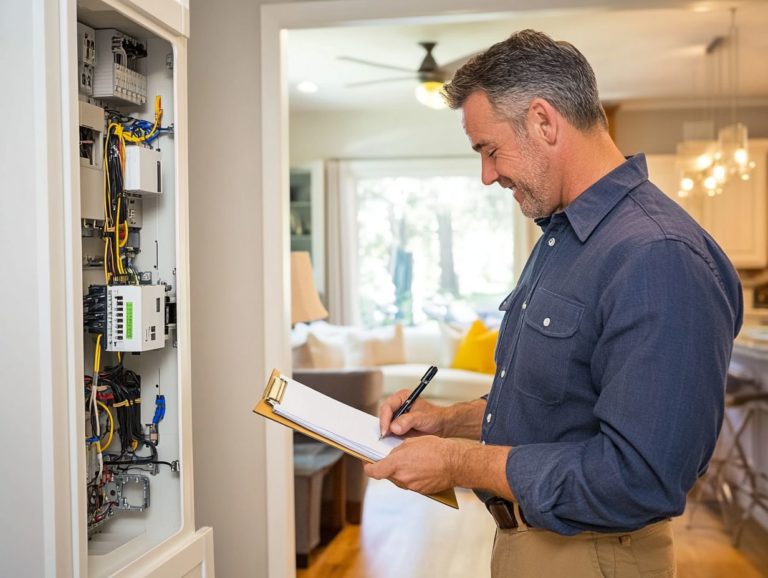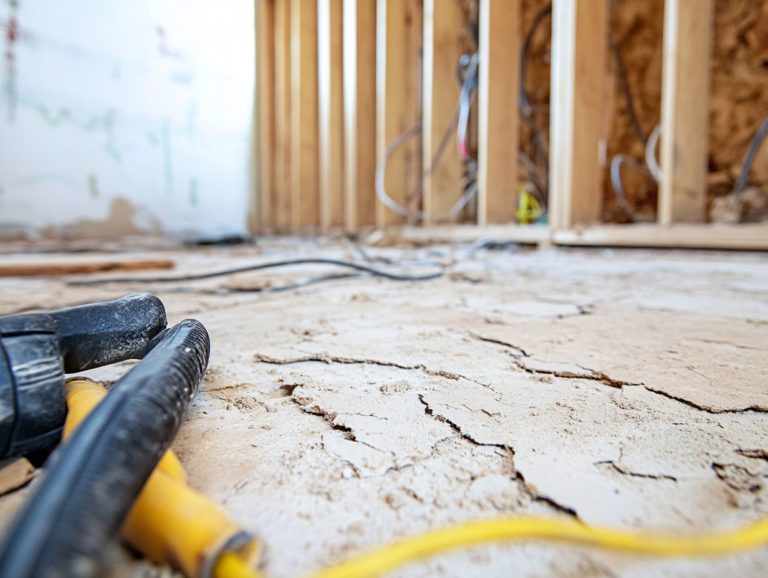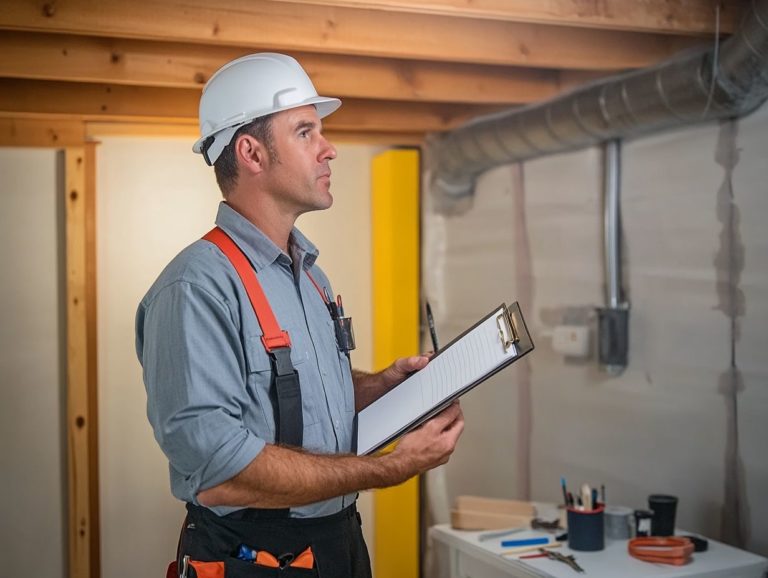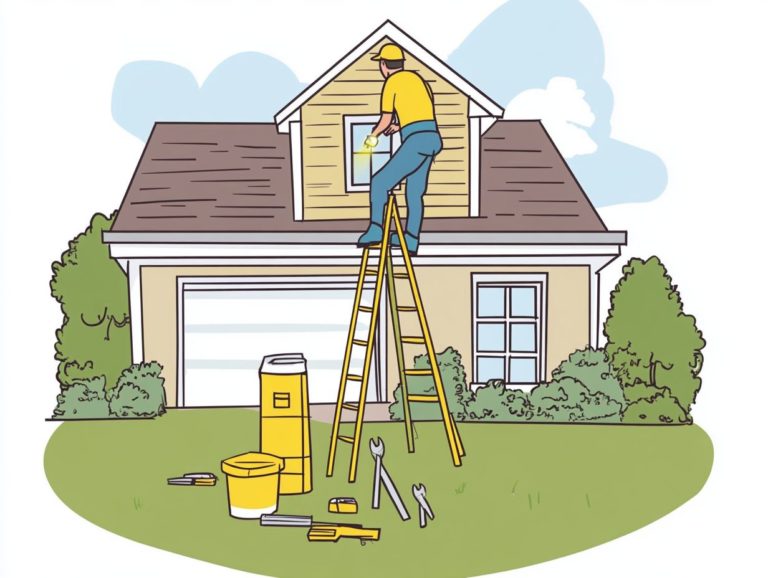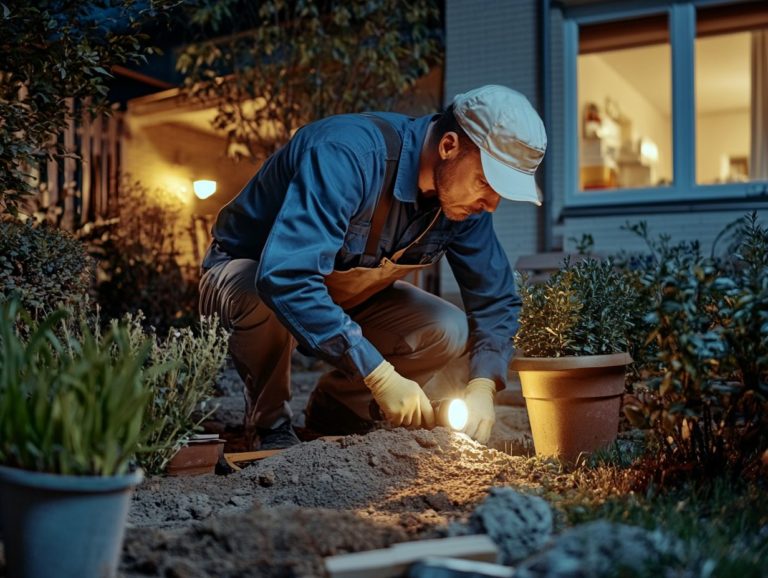Understanding the Role of Home Inspectors
When you re navigating the world of buying or selling a home, a home inspector is an essential ally. They ensure that everything is in proper order.
This article explores what home inspectors do and their responsibilities. You ll gain insights into the inspection process and learn to identify common issues.
You ll also find tips for picking the right inspector and how to prepare for a smooth inspection.
Let s dive in and take charge of your real estate journey!
Contents
- Key Takeaways:
- What is a Home Inspector?
- Why Home Inspections are Important
- When to Hire a Home Inspector
- What to Expect During a Home Inspection
- Common Issues Found During Home Inspections
- How to Choose the Right Home Inspector
- Preparing for a Home Inspection
- Frequently Asked Questions
- What does a home inspector do?
- Why is it important to understand the role of home inspectors?
- What qualifications should a home inspector have?
- What areas of a home do home inspectors typically examine?
- Can a home inspector determine the value of a property?
- What should I do if a home inspector finds an issue with the property?
- Understanding Home Inspections
Key Takeaways:
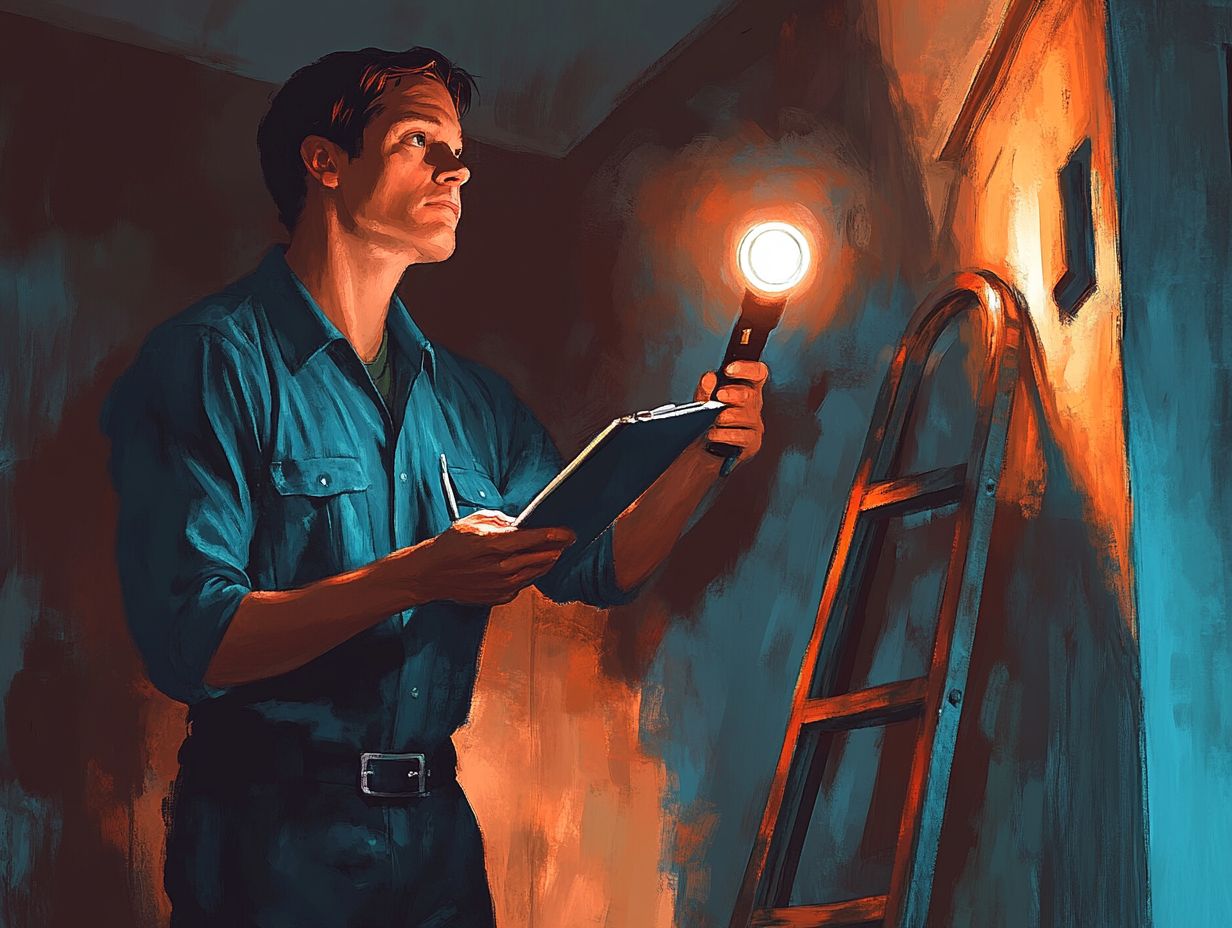
Home inspectors play a crucial role in the real estate buying and selling process. They thoroughly examine a property and identify potential issues. Understanding the role of real estate agents can further enhance this process, as having a home inspection done can save buyers from unexpected expenses and provide sellers with the opportunity to address any issues before listing their property.
When hiring a home inspector, consider their qualifications, experience, and reputation. Also, make sure to prepare the property for a smooth and efficient inspection process.
What is a Home Inspector?
A home inspector is a licensed professional dedicated to evaluating the condition of residential properties.
They provide a comprehensive inspection that covers crucial elements such as structural components, heating, ventilation, and air conditioning systems, plumbing, and electrical systems.
In Central Florida, home inspectors are essential in real estate transactions. They guide both buyers and sellers to make informed decisions about property integrity and safety compliance.
Definition and Responsibilities
Home inspectors are highly trained professionals dedicated to conducting thorough inspections of residential properties. They provide detailed reports that highlight any issues requiring immediate attention.
These skilled individuals protect the interests of both buyers and sellers, ensuring that properties are carefully checked for structural safety, electrical systems, plumbing, and overall safety compliance.
By pinpointing potential risks and deficiencies, a licensed home inspector not only offers you peace of mind but also gives you the power to make informed decisions regarding your investments.
Their reports are invaluable for negotiating repairs or price adjustments, highlighting the necessity of enlisting a qualified expert during the property assessment process.
Why Home Inspections are Important
Home inspections play a crucial role in the real estate journey. They provide you with a clear understanding of a property’s condition and help identify issues that could impact your negotiations.
In Central Florida, recognizing the significance of home inspections can lead to more informed market value adjustments and a smoother transaction experience.
Benefits of a Thorough Inspection
A thorough home inspection offers you numerous benefits. It identifies essential repairs and helps prevent buyer s remorse, easing the financial strain that unexpected property issues can bring.
This comprehensive evaluation reveals hidden problems, such as plumbing leaks or electrical malfunctions, arming you with the knowledge necessary to make informed decisions.
By understanding the property’s condition, you can negotiate repairs or adjust your offer, ultimately leading to better financial outcomes.
If you re a seller, investing in a detailed inspection allows you to tackle necessary fixes proactively. This boosts your home s appeal and minimizes the risk of last-minute surprises during the sale process.
This approach gives you the power to engage in informed negotiations, significantly reducing the chances of future disputes or unexpected expenses.
When to Hire a Home Inspector
Understanding the right moments to hire a home inspector is essential in real estate transactions. Scheduling property evaluations at key stages whether before selling, during the buyer’s due diligence, or for routine maintenance can greatly influence the trajectory of the entire process.
Making informed decisions at these junctures can enhance outcomes and ensure a smoother experience.
Key Times for a Home Inspection
Key times for a home inspection happen during real estate transactions. This is especially true when you, as a buyer, are negotiating terms, or when sellers want to disclose the property’s condition.
These inspections are vital just before you finalize a deal. They can significantly sway negotiations between you and the seller. This ensures you know exactly what you’re getting into, helping you make informed decisions.
After your offer has been accepted, pursuing these assessments is common. They uncover any hidden issues that could affect the deal’s value. Scheduling routine maintenance inspections helps you identify potential problems early and safeguards your investment while building trust with prospective buyers.
Timely inspections can truly be a game-changer in real estate dealings. They influence both price agreements and overall satisfaction.
What to Expect During a Home Inspection
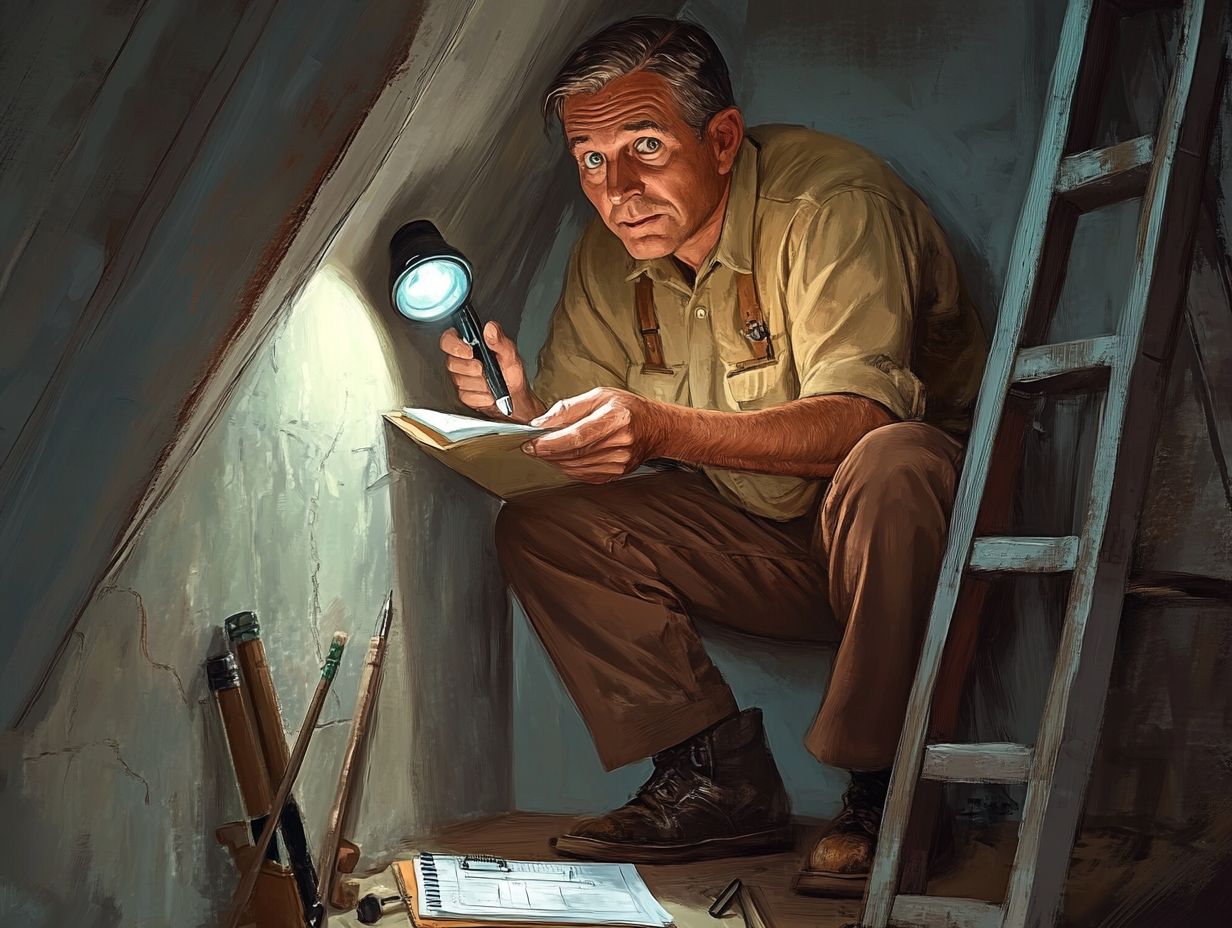
During a home inspection, anticipate a thorough evaluation of the property’s condition. This culminates in a detailed inspection report that highlights the findings.
The report provides valuable insights into the overall strength and safety compliance of the home.
Step-by-Step Process
The home inspection process involves a checklist that evaluates the roof, foundation, HVAC systems, plumbing, and electrical systems. This ensures your property s safety and compliance with building codes.
This examination uncovers potential issues and gives you peace of mind regarding your investment.
Inspectors will start by scrutinizing the roof for signs of deterioration or leaks. Next, they ll check the foundation for cracks or stability concerns.
They ll then assess the HVAC systems to ensure everything functions properly, followed by an inspection of plumbing fixtures and pipes to detect leaks or water pressure problems.
The electrical systems are also evaluated for safety hazards and code compliance. Sticking to a comprehensive checklist is vital for pinpointing areas that might need repairs or updates.
Common Issues Found During Home Inspections
During home inspections, you may encounter various common issues, from minor repairs to significant hidden problems.
This highlights the importance of thorough evaluations to safeguard against potential financial burdens down the line.
Examples and Solutions
Common issues during home inspections often include roof leaks, outdated electrical systems, and plumbing problems. Each of these concerns requires specific solutions to mitigate safety risks and maintain the property’s integrity.
If you discover roof leaks, consider immediate repairs or even a full roof replacement if the damage is extensive. Act now to prevent costly water damage and mold growth!
Outdated electrical systems can pose fire hazards. They typically require rewiring or new circuit breakers to align with current safety standards.
Plumbing issues, such as leaky pipes, waste water and can lead to significant structural damage. Therefore, timely repairs or replacements are essential.
Regular property assessments help identify and address these problems proactively, ensuring a safe and livable environment for all residents.
How to Choose the Right Home Inspector
Selecting the right home inspector is essential for a comprehensive evaluation of your property. Look for licensed professionals who have completed rigorous training and are committed to ongoing education.
This diligence ensures you receive a meticulous and informed assessment, safeguarding your investment and providing peace of mind.
Factors to Consider
When choosing a home inspector, take into account factors such as qualifications, experience, and availability. Consider using an online scheduler for a more convenient booking process.
It s crucial to ensure that the inspector possesses the appropriate certifications and a robust educational background, as these elements are the bedrock of their expertise.
Seeking someone with substantial experience can significantly enhance the thoroughness of the inspection. Availability is another key consideration; you want an inspector who can fit into your schedule without unnecessary delays.
Leveraging an online scheduler not only simplifies the booking process but also enhances communication. Reviews and recommendations from previous clients can provide invaluable insights, empowering you to make a well-informed choice when selecting a trusted professional.
Preparing for a Home Inspection
Preparing for a home inspection requires a few crucial steps to guarantee a seamless experience. Have all relevant documentation ready for review and ensure that the property is accessible and tidy, allowing the inspector to move freely. This preparation makes the inspection easier and shows you’re serious about your home.
Tips for a Smooth Inspection Process
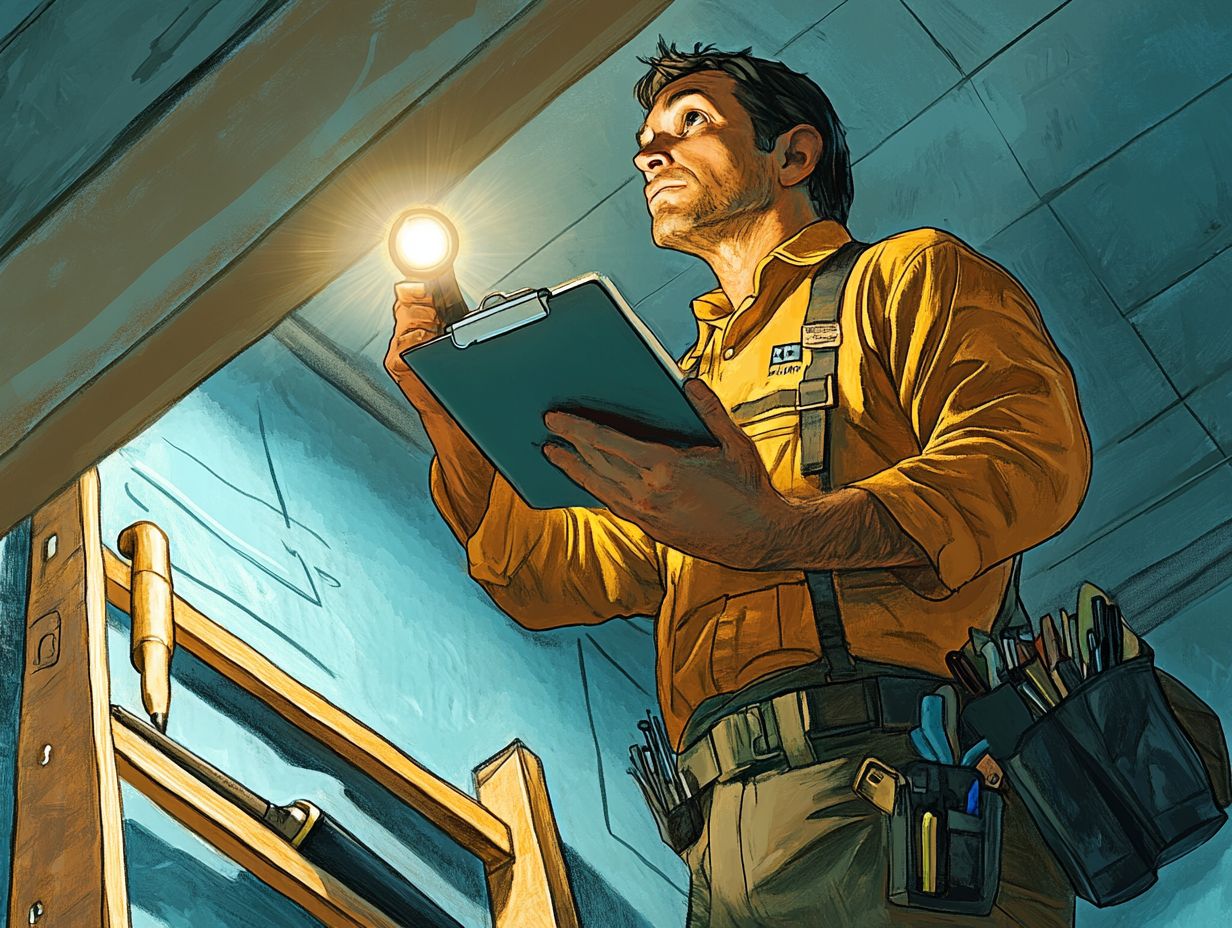
To ensure a smooth inspection process, keep these tips in mind:
- Clear pathways
- Provide easy access to key systems like Heating, Ventilation, and Air Conditioning (HVAC) and plumbing
- Familiarize yourself with common home inspection requirements
Taking a moment to declutter your spaces will facilitate the inspector’s assessment of all areas within your home.
Make sure that all light fixtures have working bulbs and that each area is well-lit; this can greatly enhance the inspector’s ability to conduct thorough evaluations.
Securing your pets in a separate room can eliminate distractions, allowing for a more focused inspection process.
Preparing relevant documentation such as repair records or permits will provide the inspector with crucial context, helping them perform a more effective assessment of your property.
Take these steps now to ensure your inspection goes off without a hitch!
Frequently Asked Questions
What does a home inspector do?
A home inspector’s main job is to provide an objective evaluation of a property’s condition and identify any potential issues or defects. They will typically examine the major components of a home such as the foundation, roof, plumbing, electrical, and HVAC systems to assess their functionality and safety.
Why is it important to understand the role of home inspectors?
Understanding the role of home inspectors is important because it allows you to know what to expect from their services. Knowing their responsibilities and limitations can help you make informed decisions when purchasing a property and ensure that you get the most out of their inspection.
What qualifications should a home inspector have?
Home inspectors should have the necessary training, experience, and certifications to perform their job effectively. It is recommended to hire a home inspector who is a member of a professional organization, such as the American Society of Home Inspectors, and has completed an accredited training program.
What areas of a home do home inspectors typically examine?
Home inspectors will typically examine the major components of a home such as the foundation, roof, exterior, interior, plumbing, electrical, and HVAC systems. They may also check for issues with the insulation, ventilation, and potential safety hazards.
Can a home inspector determine the value of a property?
No, a home inspector’s role is not to determine the value of a property. They are primarily focused on identifying any potential issues or defects in a home. For an accurate assessment of a property’s value, it is best to consult with a real estate appraiser.
What should I do if a home inspector finds an issue with the property?
If a home inspector finds an issue with the property, it s important to discuss the findings with them, understand the implications, and consider your options moving forward. Don’t hesitate to reach out for further questions or assistance; your home is worth it!
Understanding Home Inspections
If a home inspector finds an issue with the property, discuss it with the seller and your real estate agent. You can negotiate repairs or a reduction in the price based on the issue s severity.
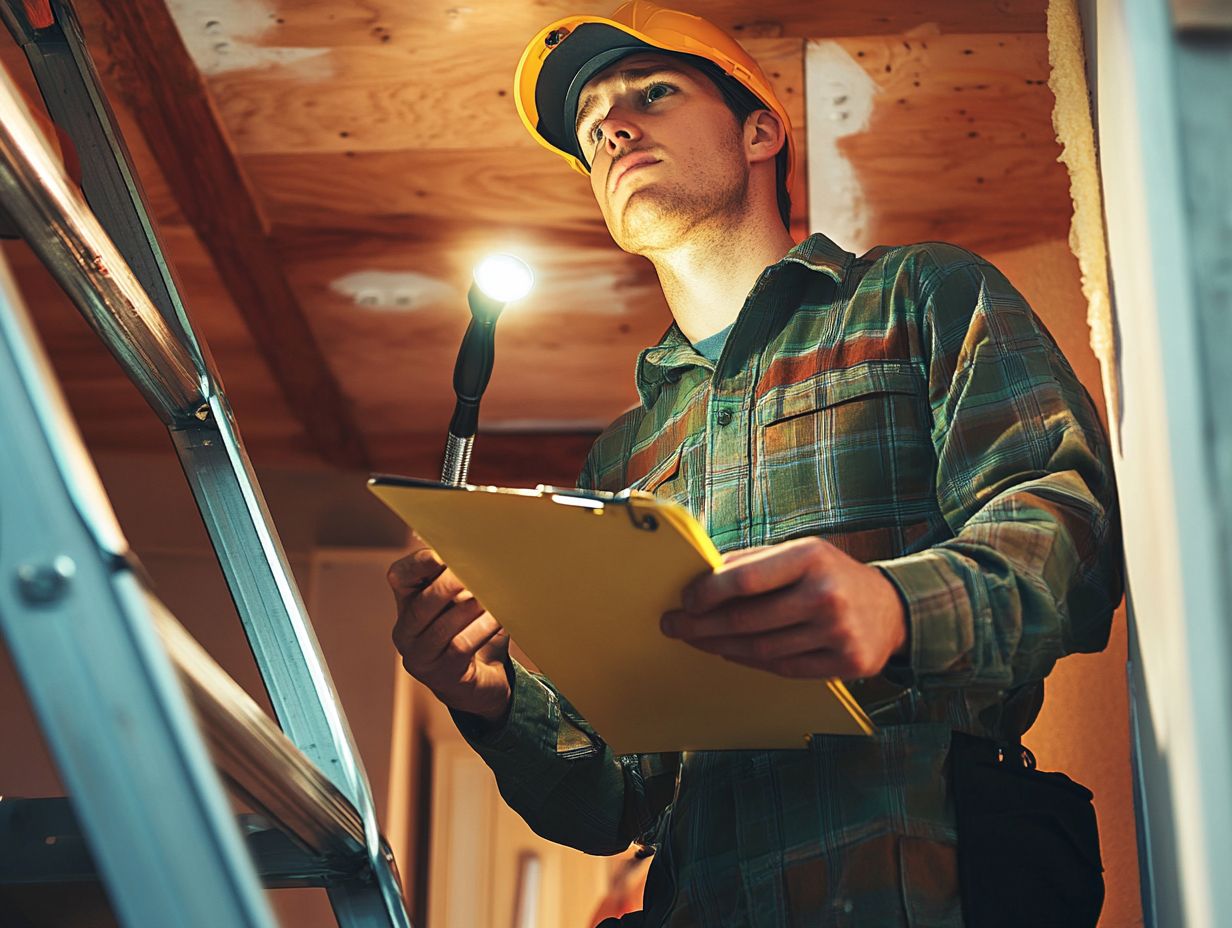
Home inspectors should have proper training and certifications. It’s best to hire one who is a member of a professional group, like the American Society of Home Inspectors.
What do home inspectors check?
Inspectors look at important parts of a home: the foundation, roof, exterior, interior, plumbing, electrical systems, and HVAC (heating, ventilation, and air conditioning). They also check insulation, ventilation, and safety hazards.
Can inspectors determine property value?
No, they focus on finding issues, not valuing the property. For value assessments, consult a real estate appraiser.
What if issues are found?
If issues arise, address them immediately with your seller and agent. This step is essential for negotiating repairs or price reductions!

